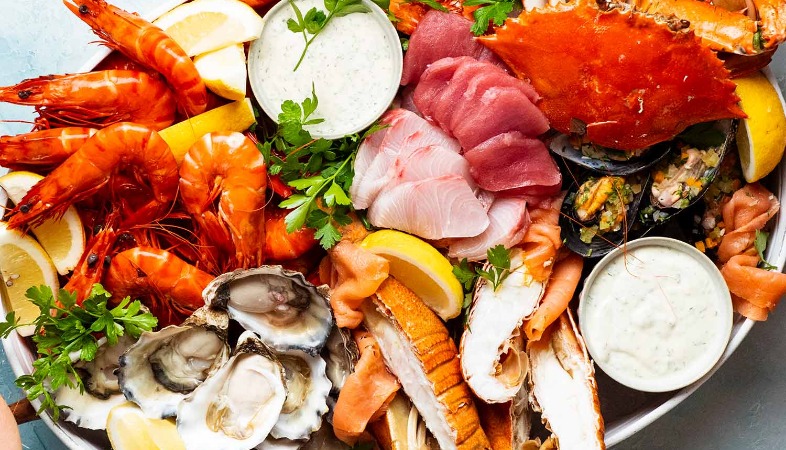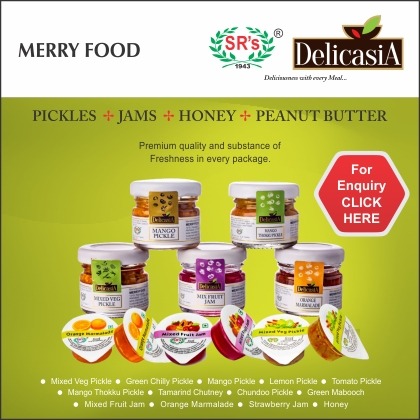Sustainable Seafood: Charting the Course for Ocean-Friendly Dining
Sustainable seafood is not just a trend—it is a necessity for the health of our oceans and the future of our planet.

In recent years, there has been a growing awareness of the
environmental impact of our food choices, particularly when it comes to
seafood. Overfishing, habitat destruction, and bycatch are just some of the
issues plaguing our oceans. However, there is hope on the horizon as more
consumers, chefs, and seafood suppliers are embracing sustainable practices to
ensure a healthier future for our oceans and seafood populations. In this article,
we will explore the concept of sustainable seafood and how it is shaping the
landscape of ocean-friendly dining.
Sustainable seafood refers to fish and shellfish that are caught or farmed in a manner that minimizes their impact on the environment and ensures the long-term health of marine ecosystems. This includes practices such as avoiding overfished species, reducing bycatch, protecting habitats, and promoting responsible aquaculture.
One of the key principles of sustainable seafood is choosing species that are abundant and well-managed. This means opting for fish stocks that are not overexploited and are harvested at a rate that allows them to replenish naturally. By selecting seafood from well-managed fisheries, consumers can help support sustainable fishing practices and protect vulnerable marine populations from depletion.
Another important aspect of sustainable seafood is reducing bycatch, which refers to the unintentional capture of non-target species, such as dolphins, turtles, and seabirds, in fishing gear. By using selective fishing methods, such as hooks and lines or traps, fishermen can minimize bycatch and ensure that only the intended species are caught. Additionally, innovations in fishing gear, such as turtle excluder devices (TEDs) and acoustic deterrent devices (ADDs), are helping to further reduce bycatch and protect marine wildlife.
In addition to wild-caught seafood, sustainable aquaculture plays a vital role in meeting the growing demand for seafood while reducing pressure on wild fish stocks. Responsible aquaculture practices focus on minimizing environmental impacts, preventing disease outbreaks, and ensuring the welfare of farmed fish. This includes measures such as locating farms in areas with strong water currents to prevent pollution buildup, monitoring water quality to prevent disease outbreaks, and providing adequate space and nutrition for farmed fish to thrive.
Consumers can also make a difference by choosing seafood that is certified sustainable by reputable organizations such as the Marine Stewardship Council (MSC) or the Aquaculture Stewardship Council (ASC). These certifications ensure that seafood products meet strict criteria for sustainability and traceability throughout the supply chain. By looking for these labels when shopping for seafood, consumers can make informed choices that support sustainable fishing and aquaculture practices.
In the culinary world, chefs are increasingly championing sustainable seafood and incorporating it into their menus. By working closely with seafood suppliers to source responsibly harvested seafood, chefs can create delicious and innovative dishes that highlight the natural flavors and textures of ocean-friendly ingredients. From pan-seared salmon to grilled oysters, there is no shortage of delectable seafood options that are both sustainable and satisfying.
Sustainable seafood is not just a trend—it is a necessity for the health of our oceans and the future of our planet. By choosing seafood that is responsibly harvested or farmed, consumers can play a crucial role in supporting sustainable fishing practices and protecting marine ecosystems. Together, we can chart a course towards a future where seafood is not only delicious but also environmentally sustainable for generations to come.
The journey towards sustainable seafood is a collective effort that involves consumers, chefs, seafood suppliers, and policymakers. By working together to prioritize environmental sustainability and responsible stewardship of our oceans, we can ensure that future generations will continue to enjoy the bounty of the sea for years to come. So, let us raise our forks in celebration of ocean-friendly dining and the promise of a healthier planet for all.
.png)




























